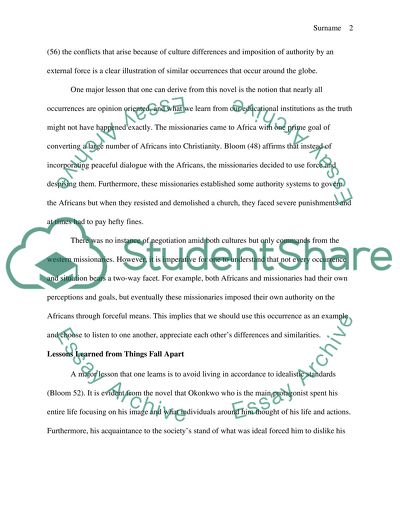Cite this document
(“Chinua Achebes Things Fall Apart Essay Example | Topics and Well Written Essays - 1250 words”, n.d.)
Retrieved from https://studentshare.org/literature/1650914-chinua-achebes-things-fall-apart
Retrieved from https://studentshare.org/literature/1650914-chinua-achebes-things-fall-apart
(Chinua Achebes Things Fall Apart Essay Example | Topics and Well Written Essays - 1250 Words)
https://studentshare.org/literature/1650914-chinua-achebes-things-fall-apart.
https://studentshare.org/literature/1650914-chinua-achebes-things-fall-apart.
“Chinua Achebes Things Fall Apart Essay Example | Topics and Well Written Essays - 1250 Words”, n.d. https://studentshare.org/literature/1650914-chinua-achebes-things-fall-apart.


